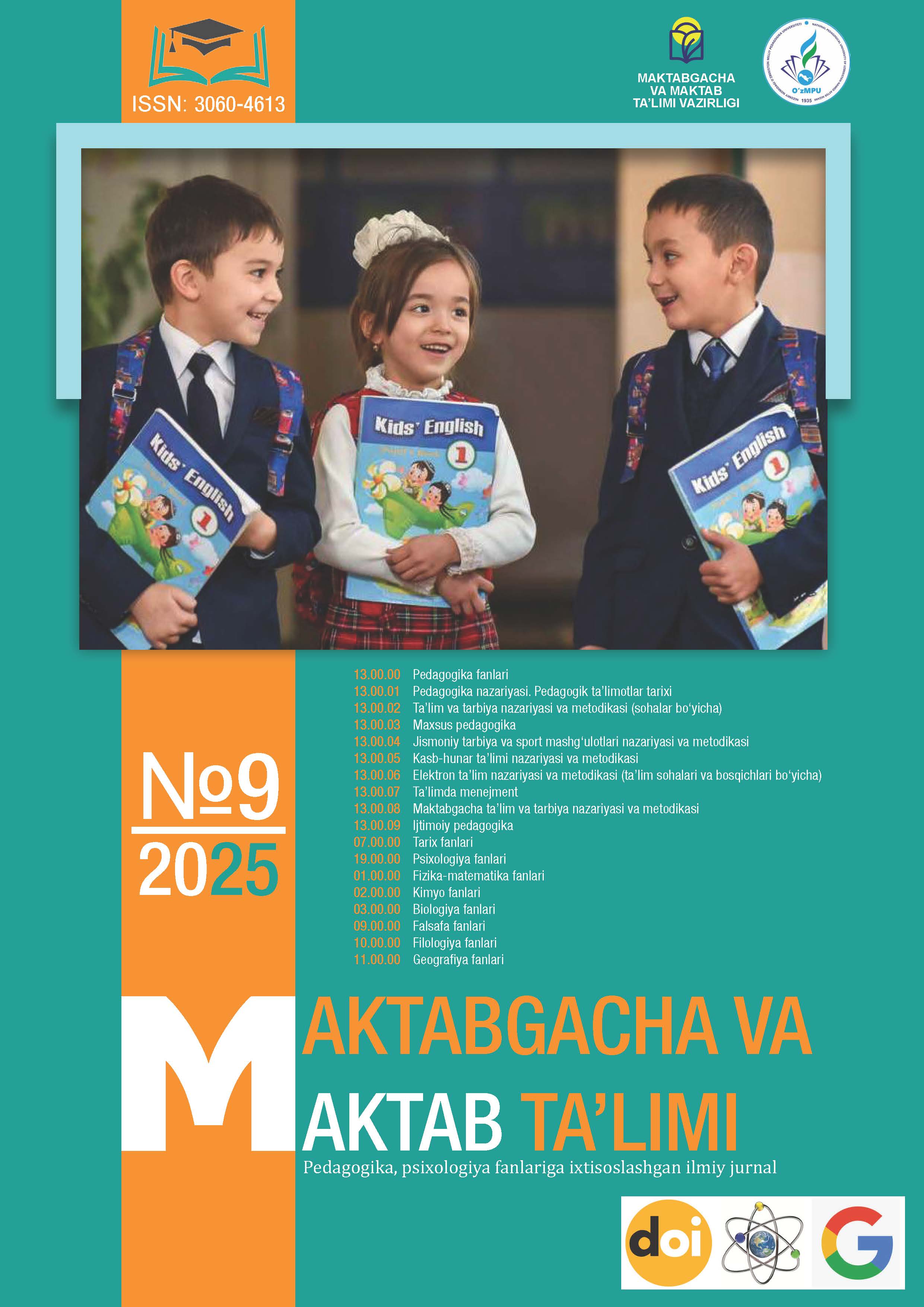Borrowed Proper Nouns in English and Uzbek: a Comparative Analysis
DOI:
https://doi.org/10.5281/zenodo.17169744Ключевые слова:
borrowed proper nouns, English, Uzbek, onomastics, cultural identity, globalization, linguistic borrowing, comparative linguisticsАннотация
This article explores the phenomenon of borrowed proper nouns in English and Uzbek, focusing on the linguistic,
historical, and cultural factors that have shaped their development. Borrowing is a universal linguistic process that
enriches languages and reflects cultural contact and exchange. In English, a significant number of personal names, place
names, and institutional names have been borrowed from Latin, French, Greek, and Biblical sources, often carrying deep
historical and cultural connotations. Similarly, Uzbek proper nouns demonstrate a strong influence from Arabic, Persian,
and Russian, reflecting religious traditions, literary heritage, and political history.
The study provides a comparative analysis of the borrowing processes in both languages, highlighting similarities such as
the adaptation of foreign names to native phonetic and morphological systems, as well as differences based on cultural
and historical contexts. Special attention is given to the role of globalization and modern English borrowings in contemporary
Uzbek naming practices. The findings of the study reveal that borrowed proper nouns not only enrich linguistic
resources but also serve as important markers of cultural identity and intercultural communication
Библиографические ссылки
1. O‘zbekiston Respublikasi Prezidenti. (2017, February 8). O‘zbekiston Respublikasining yanada rivojlantirish bo‘yicha
Harakatlar strategiyasi to‘g‘risida [Decree]. Xalq so‘zi gazetasi, (28), 6722.
2. Карасик, В. И. (2000). О типаксе дискурса. In Языковая личность: институциональный и персональный дискурс:
сб. Науч. Ст. (pp. 5–20). Волгоград.
3. Ammer, C. (2013). Dictionary of idioms (p. 325). New York, NY: Houghton Mifflin Harcourt.
4. Arutyunova, N. D. (1990). Diskurs. In Lingvistik entsiklopedik lug‘at matni (pp. 136–137). Moskva: Sovet Entsiklopediyasi.
5. Aleksandrova, O. V., & Kubryakova, E. S. (Year not provided). Diskursdagi matn maydonining turlari. In Dunyo toifalari:
makon va vaqt. Ilmiy konferentsiya materiallari (Ed. Prof. E.S.). [Page numbers missing].
6. Xosilova, S. (2025). Linguocultrological analysis of gastronomic discourse in Uzbek and English: cultural semantics
and linguistic units. Journal of Applied Science and Social Science, 1(4), 480–484.
7. Xosilova, S., Quchqorov, B., & Xasanov, S. (2025). The role of food signs in British culture. Journal of Multidisciplinary
Sciences and Innovations, 1(2), 269–274. https://inlibrary.uz/index.php/jmsi/article/view/85764
Загрузки
Опубликован
Выпуск
Раздел
Лицензия
Copyright (c) 2025 MAKTABGACHA VA MAKTAB TA’LIMI JURNALI

Это произведение доступно по лицензии Creative Commons «Attribution» («Атрибуция») 4.0 Всемирная.

